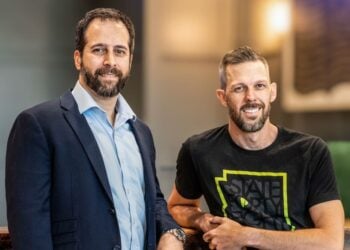Two weeks after 17-year-old Wa’il Ashshowwaf started college, he was charged with a crime he said he didn’t do.
“At the time I didn’t know my rights. It was the early 1990s,” recalled Ashshowwaf. “I didn’t have access to any help or resources. There was no Internet back then. I learned a very valuable lesson at that moment which was, if you don’t know your rights, it’s as if you don’t have any. Don’t always assume that the justice system is there to advocate for your innocence, if you don’t know your rights it doesn’t happen.”
“I had to plead a no contest because I couldn’t afford a lawyer.” He knew that when he turned 18 the next year, his arrest would be expunged.
Techie at Heart
Ashshowwaf, who calls himself a techie at heart, has had a successful career in technology, finance and as an entrepreneur. But he never forgot his experience with the justice system as a teenager.
“I’ve always carried that lesson with me,” he said. “I was really good at was problem solving, that was a unique thread, understanding technology to see how I can solve problems.” That was the foundation for his new company called Reyets (Pronounced “rights” – a combination of the words “rights” and “eyewitness”). It went live in 2019.
“Turn every cell phone into a tool for accountability, knowledge and safety,” reads the firm’s website. Reyets handles matters including criminal defense, workers’ rights, housing rights, civil rights, LGBTQ rights and women’s rights, among others.
“First, it’ll help you know what your rights are in Virginia or Maryland or whatever state that you’re in,” explained Ashshowwaf. “Each answer is formatted with two or three sentences of what you need to know if you only have 30 seconds. And then there’s an explanation of it in lay terms so you don’t need to read legal jargon.
“Secondly, the app will let you document incidents through securely recorded video which it then backs up to your device. You can also record notes, technical documents or pictures.”
Last, the app can connect users with resources to get help. There are paid and pro bono lawyers, organizations and government resources. Social justice organization on the Reyets app now include the National Organization for Women, My Brother’s Keeper 617 and Peacetech Lab.
Lawyers and organizations can pay to be listed on the app. “There is a monthly fee for lawyers to be listed within the app,” he said. “Lawyers can also sponsor our content. A North Carolina lawyer who specializes in workplace rights could sponsor the section on workplace rights and pay to have their information included. We also partner with organizations which sign up to pay a monthly fee to get access to the dashboard, which lets them interact with their members.”
Reyets has raised money through crowdfunding and an investment from Camelback Ventures, a nonprofit that invests in social impact leaders, and is actively looking for growth capital from angel and venture capitalists and crowd funding.
Guessing Their Rights
In the aftermath of the murders of George Floyd, Breonna Taylor and others, Ashshowwaf said he talked to about 100 organizations, “What I learned was filming the police was making it more visible, people were mistaking visibility for progress. Progress wasn’t actually happening. We realized people thought they knew their rights, but they didn’t. They guessed their rights, and even when they did know their rights, they didn’t feel safe asserting them.”
“Imagine a more just world. We do. We’re a tech company, but we’re also citizens. We value an equitable, just society, and think technology can be used for the good of all – as an agent for positive social change,” said Ashshowwaf.
Supporting Do-Gooders
“Reyets pioneers a suite of mobile and AI-driven tools, designed for both consumers and organizations. Their innovative approach addresses not only civil rights and police misconduct but also broader facets of criminal justice and various forms of injustice. With Reyets, advocacy is empowered and broadened, in pursuit of a more just world for all,” said Maya Markovich, executive director of the Justice Tech Association.
“We love supporting do-gooders,” said Ashshowwaf. “We’d love to be the platform that powers advocacy in the U.S. and abroad. We think that within the next five years, we can be in 20 or 30 countries and be able to measure our impact both in economic terms and societal terms.”








